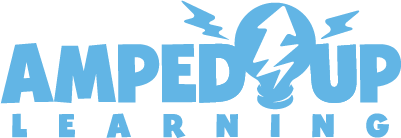Description
Have you been given a Psychology class and you don't know where to start? At Mano Koa Enterprises, Psychology is "No Pilikia (Problem in Hawaiian)."
This product contains 87 lessons and is broken down into 6 UNITS:
-
History of Psychology (Schools of Thought and Methods)
-
Neuroscience
-
Developmental Psychology
-
Social Psychology (Advertising, Love, Obedience, Culture)
-
Consciousness (Perception, Sleep, Dreams)
-
Clinical Psychology (Medical Model, Biopsychosocial Model, Media Theory)
In the first unit, students will...
-
Participating in the early traditions of psychology from classical philosophy including the Buddha, Lao Tzu, Confucius, Socrates and Plato.
-
Apply the relevant methods of Freudian Psychoanalysis including the divisions of the mind, defense mechanisms, anxiety and fixations/complexes.
-
Evaluate Jungian typology theories by predicting their personality codes before they take the Myers-Briggs Personality Typology Test.
-
Analyze how Hollywood screenwriters employ Jungian archetypes in their stories.
-
Create their own personalized Hierarchy of Needs based on the theories of Abraham Maslow.
-
Examine the processes employed in Classical and Operant Conditioning.
In the second unit, students will...
-
Process action potentials in a relay race.
-
Analyze how mirror neurons enhance human life through the applications of movies and sports.
-
Serve as "doctors" to prescribe the right neurotransmitters for patients exhibiting a wide variety of symptoms.
-
Examine zombie behaviors to learn about the lower level brain.
-
Master the functions of the cerebral cortex by designing cybernetic humans.
-
Encode, store and recall memories in a multifaceted relay race.
-
Learn about the different schools of thought concerning fear and how Hollywood cheats in their horror movies by pumping infrasound into movie theaters.
-
Design and build their own model brains and research one of several dozen conditions to examine how the brain is effected.
In the third unit, students will...
-
Examine the proper development of the brain and nervous system during embryonic gestation.
-
Examine all four stages of Jean Piaget's Individual Constructivist Model.
-
Examine Diana Baumrind's model of parenting.
-
Develop tools necessary to build executive functioning.
-
Evaluate the neurological changes that happen during adolescence.
-
Apply the moral development models created by both Lawrence Kohlberg and Carol Gilligan.
-
Examine the five stages of Emerging Adulthood.
-
Process the neurological, psychological and social trends common to adult psychology.
In the fourth unit, students will...
-
Examine and apply the social psychological trends of sports psychology and rivalries.
-
Analyze the psychological techniques behind advertising.
-
Study and explain the biochemical effects of attraction, infatuation, and breakup.
-
Analyze the seven types of love.
-
Examine the striking psychological differences between individualist and collectivist cultures.
-
Create a science fair like project in which students will research and present the social psychological trends behind a sport or country (with the U.S. serving as the control).
In the fifth unit, students will...
-
Examine the neurological effects of optical illusions.
-
Participate in an experiment where they learn how sleep deprived they are.
-
Learn why it is not a good idea to cram all night before a test with neurological science.
-
Interpret Dreams using neurological, Freudian, and Jungian methodologies.
-
Learn the neurological basis for lucid dreaming and will learn of all three methods by which they can attain it.
In the sixth unit, students will...
-
Examine the criteria by which unusual behavior qualifies for a psychological disorder.
-
Discover and analyze the effectiveness of various psychiatric and psychological therapy techniques from Selective Serotonin Reuptake Inhibitors to Cognitive Behavioral Therapy.
-
Distinguish the difference between having a psychological disorder and being criminally insane.
-
Contextualize the current condition of the mental health system by placing it in the broader context of American Psychiatric History.
-
Demonstrate their understanding by completing a clinical psychology project (a course-long summative assessment) in which they research either a class appropriate condition in the Diagnostic and Statistical Manual for Mental Disorders: Edition 5 (DSM-5) or a famous case of abnormal behavior.
Every lesson contains the following:
-
A series of PowerPoints with Classroom Management Tools.
-
A highly detailed lesson plan equipped with TAG and ELL/IEP/504 strategies.
-
Hands-On Instructional Materials
-
Originally Designed Assessments
-
Answer Keys for EVERYTHING!!!!
Not sure you want to buy? No Pilikia.
Try our six FREE lessons attached to this product.






